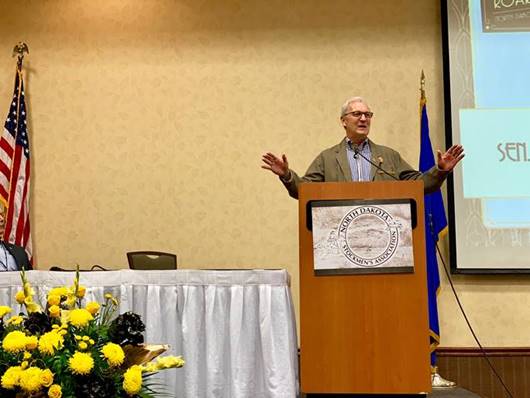BISMARCK – U.S. Senator Kevin Cramer (R-ND), a Senate Environment and Public Works (EPW) Committee member, delivered remarks at the North Dakota Stockmen’s Association annual convention today.
“North Dakota’s ranchers are a foundational part of our state who contribute to America’s economic and national security,” said Senator Cramer. “Since coming to the Senate, I have worked closely with my colleagues and the Trump Administration to reduce bureaucratic regulatory hurdles, defend private property rights, and bolster our food supply chain. My goal has been to find a balance that ensures maximum options for producers and maximum transparency for price discovery. It was an honor to meet with North Dakota Stockmen’s Association members to hear about their concerns, and I look forward to working together to advance their priorities.”

Senator Cramer was joined at the convention by Senator John Hoeven and U.S. Department of Agriculture (USDA) Under Secretary Greg Ibach.
“The Trump Administration’s unparalleled attentiveness to North Dakota, especially our agricultural community, is greatly appreciated,” said Senator Cramer. “I’m glad Under Secretary Ibach was able to visit and hear from our ranchers.”
Throughout the COVID-19 pandemic, Senator Cramer has been a leading voice in Congress for North Dakota’s ranchers. He fought to secure assistance for ranchers in the CARES Act and denounced Democrats for attempting to not appropriate routinely authorized funds in the Commodity Credit Corporation, which is used to fund agriculture assistance programs.
Senator Cramer was one of the first senators to urge the Department of Justice (DOJ) to investigate the meat packing industry for price fixing, an investigation which DOJ eventually launched and remains ongoing. He led aletter to USDA Secretary Sonny Perdue asking him to consider regulatory and programmatic reforms in the meat processing industry, and hasadvocated for further COVID-19 relief to include bipartisan legislation which would create a more diversified and robust food supply chain.